Given that the site’s monthly traffic peaked at just ~23K (according to Ahrefs), that’s impressive!
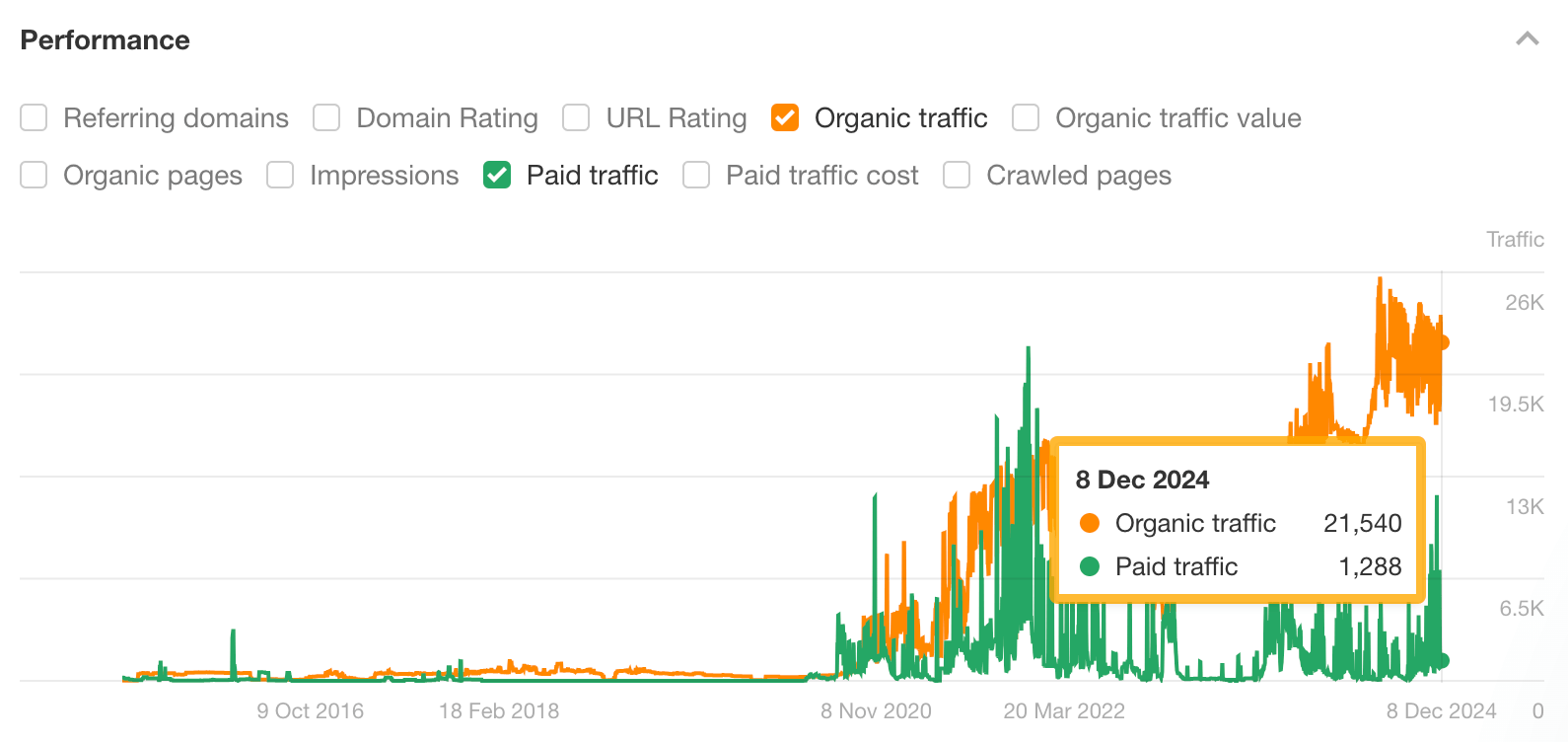
Curious how he did it (and how the rest of us mere mortals might be able to replicate his success), I sat down with Ash to dissect the key pieces of the puzzle and learn about his future plans for the store.
Below are takeaways from our chat that I hope will help anyone looking to follow in his footsteps.
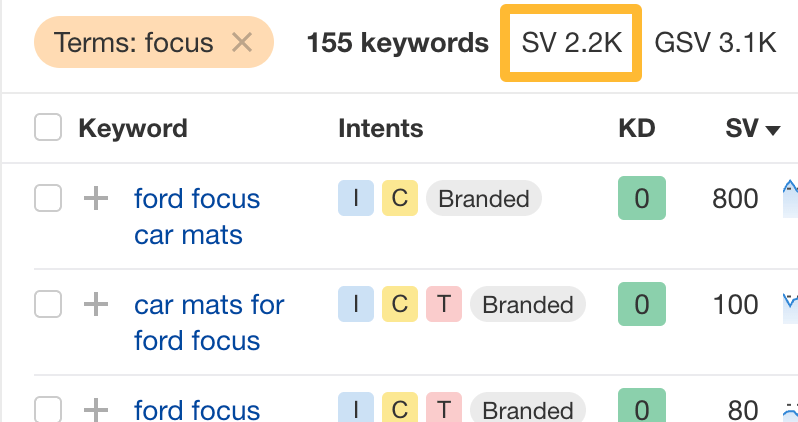
While it matters that people are searching for your products if you plan to drive traffic from search, knowing the target market is equally as important. Ash having a Ford Focus meant he was the target market and could actually test his product firsthand.
It also meant that he only had to find and source one product to begin with, allowing him to test and validate his idea quickly.
How did he do that? By driving paid traffic to the product landing page via Google Ads:
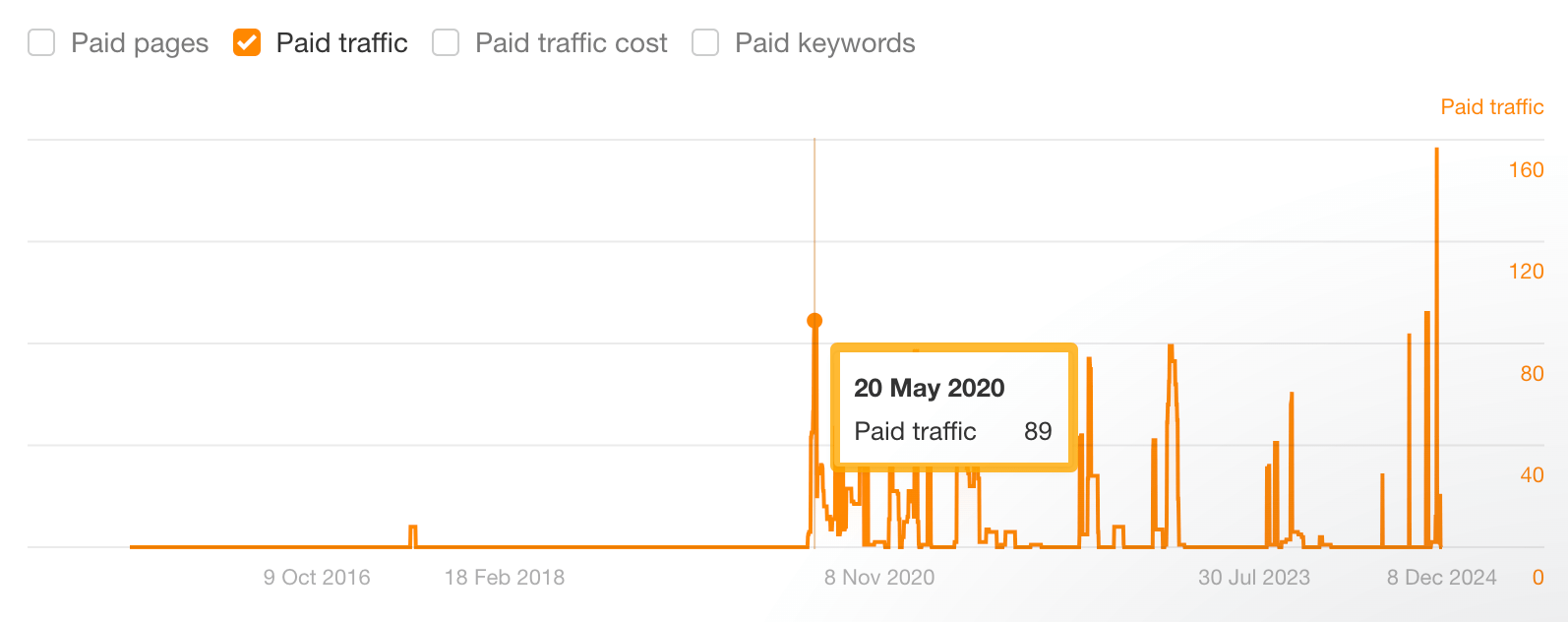
Doing this allowed him to get a sense of whether the numbers worked. Could he drive consistent traffic, deliver a quality product, and make at least some profit—or did things simply not add up?
Given that he’s on track to hit £10M in total sales early next year, you can probably guess the answer…
Crucially, though, he made an effort not to make his store look like it only stocked one product. He built out the full menu so it looked like any other store. The only difference was that the rest of the products weren’t clickable.
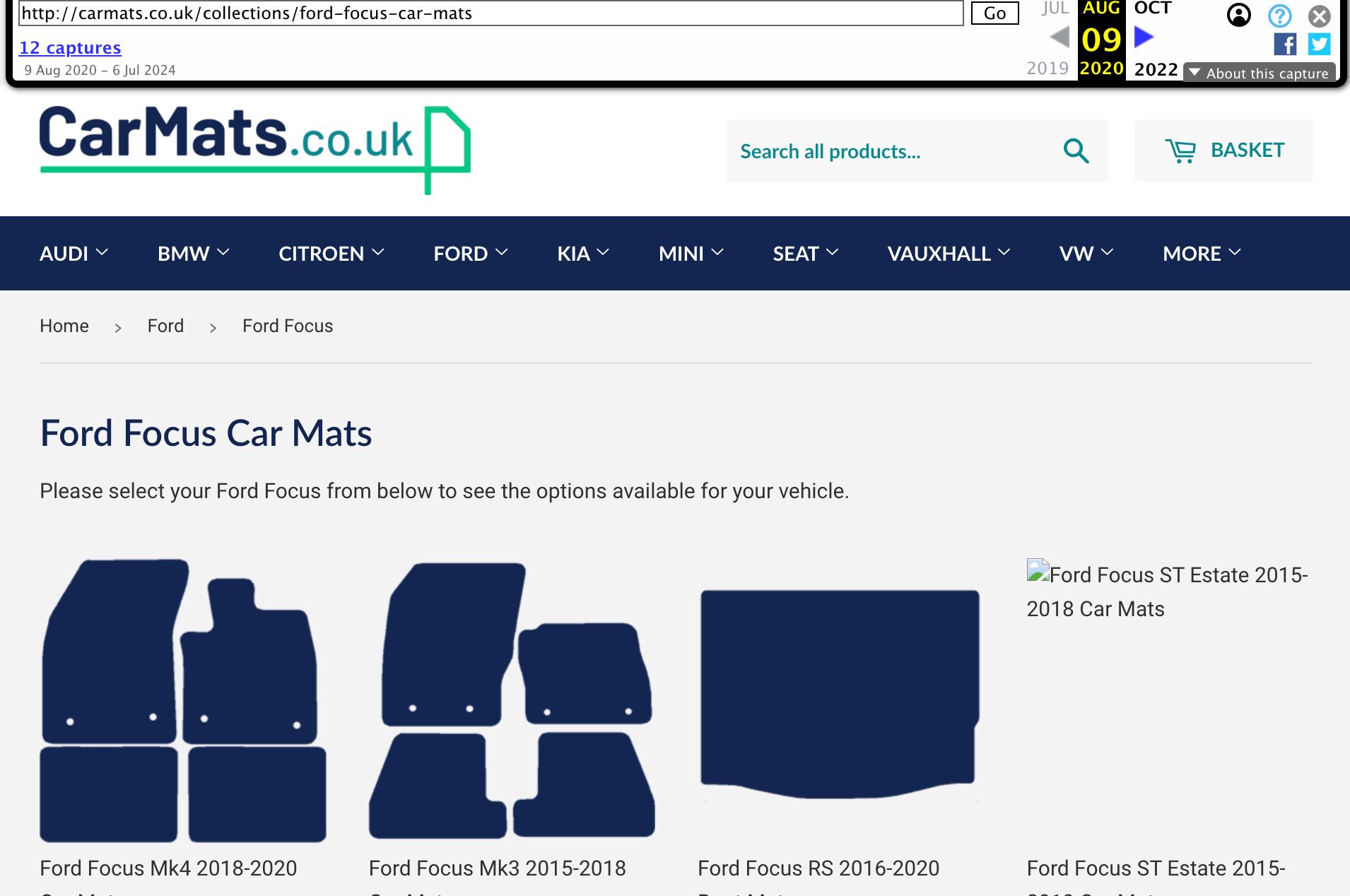
He then slowly populated the store with other models over the coming months, again by combining a mix of keyword research and common sense to keep things logistically possible.
We tried to do it one manufacturer at a time, so we did all of Ford and then moved on to other popular manufacturers before smaller ones. […] If you end up running around doing, say, the top 20 top-selling models [as per keyword research] then you’ll end up in a pickle very quickly.
But Ash said he fulfilled all orders from the start, and his reason was super interesting.
If you took 50 orders and didn’t fulfill any of them and refunded them all, you’re going to get some really negative press right off the bat. Negativity is just not what you want when you’re trying to start up.
It’s important to remember that Ash was trying to build a legit brand here, not just a throwaway site to make bank for a few months before tanking.
Of course, it might seem like this isn’t so important for a site selling car mats. After all, even Ash himself admitted that repeat custom isn’t a big driver of sales for the brand. So, pride aside, why does reputation really matter?
Personally, I think it has to do with how people buy things online…
If you’re anything like me, then I doubt you would just search “car mats” and pull the trigger on the first site you click. You’d at least head back to Google and search for the brand’s reviews first.
Here’s what you see if you do that for Ash’s site:
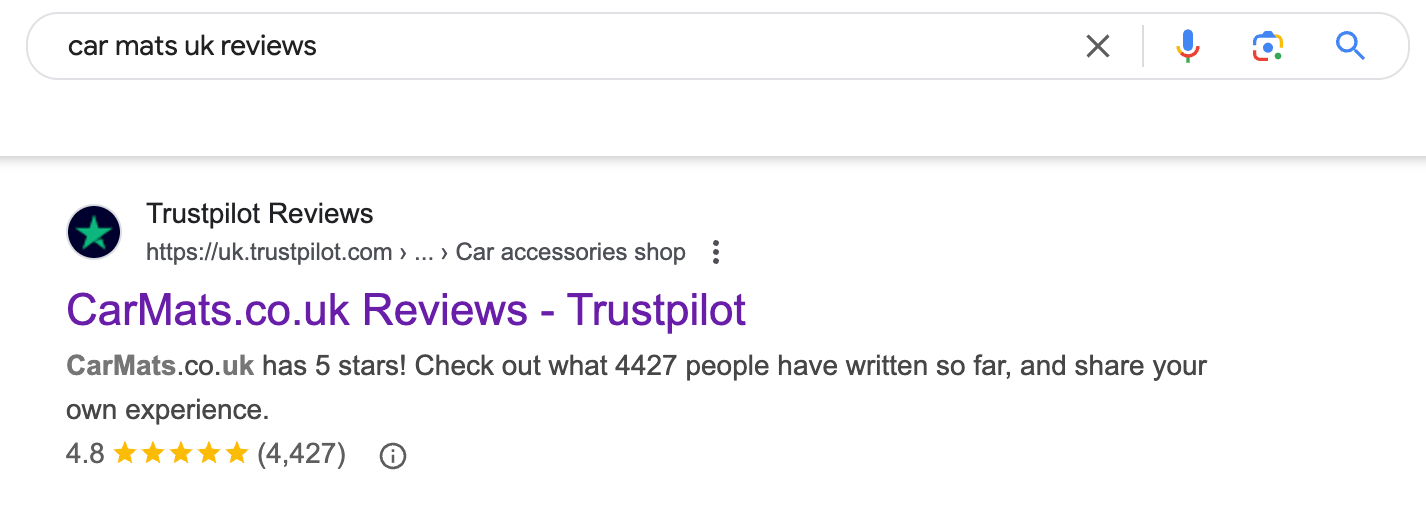
By shipping quality products from day one, Ash was able to build a solid reputation from the get-go. Just scroll back to early reviews on TrustPilot and you’ll see that these were coming in thick and fast just months after he started the site.
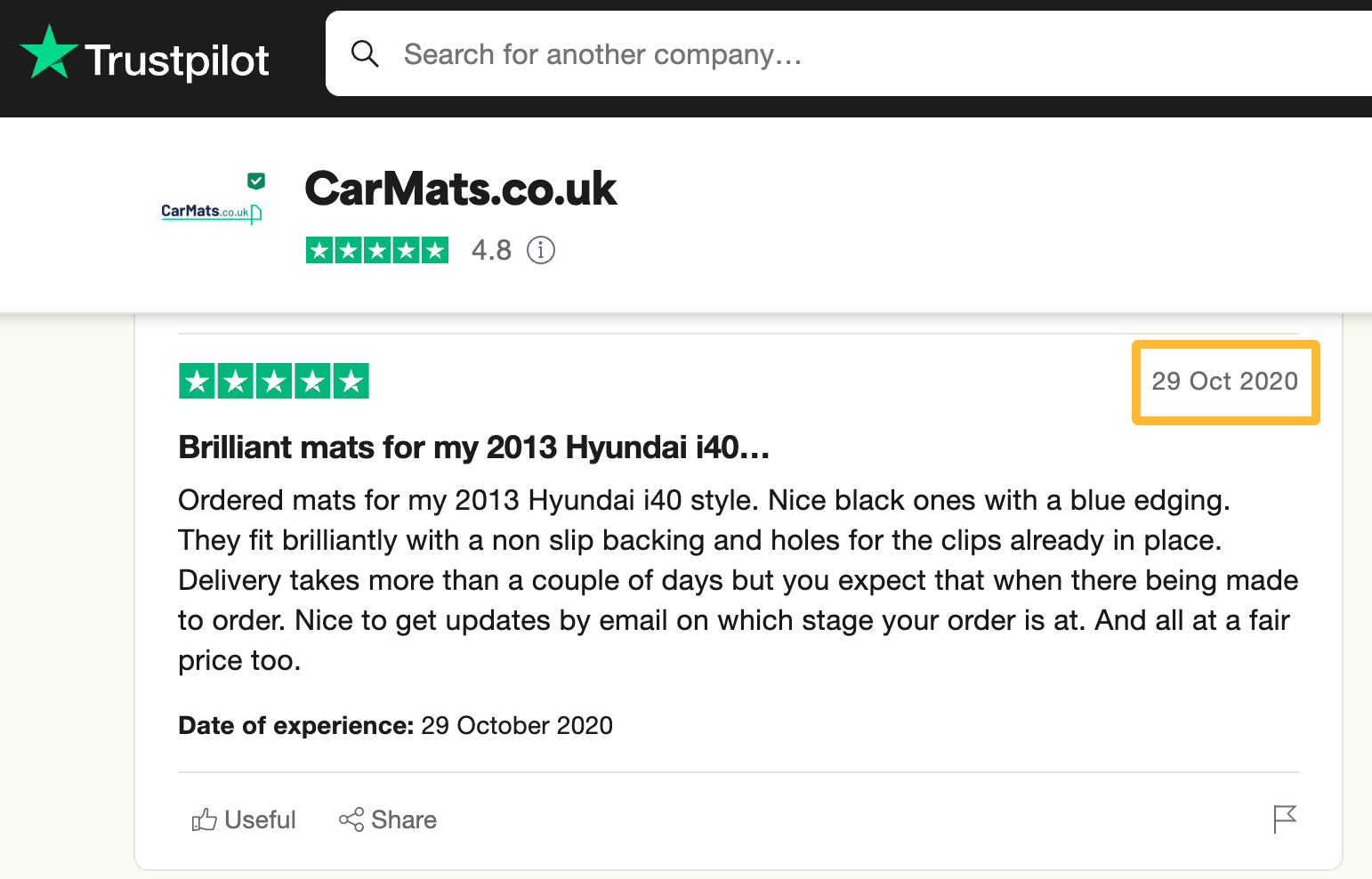
This helps to relieve any anxiety potential customers might have and no doubt leads to more of them actually pulling the trigger and buying from his store. In turn, this leads to a better return on ad spend and other marketing activities.
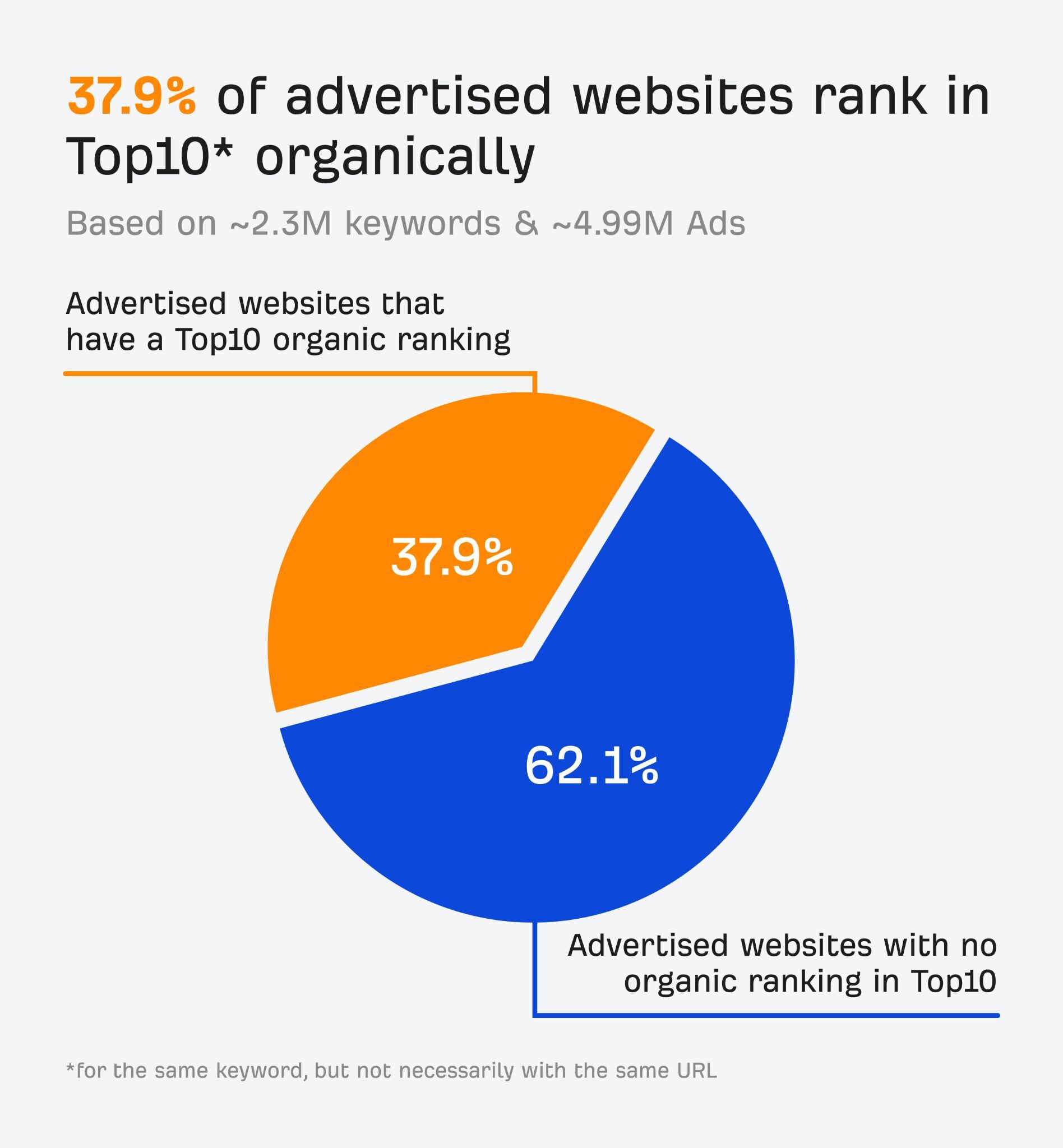
15.7% of these sites even advertise the same page that ranks in the top 10, and 40.66% of advertised pages rank #1 organically.
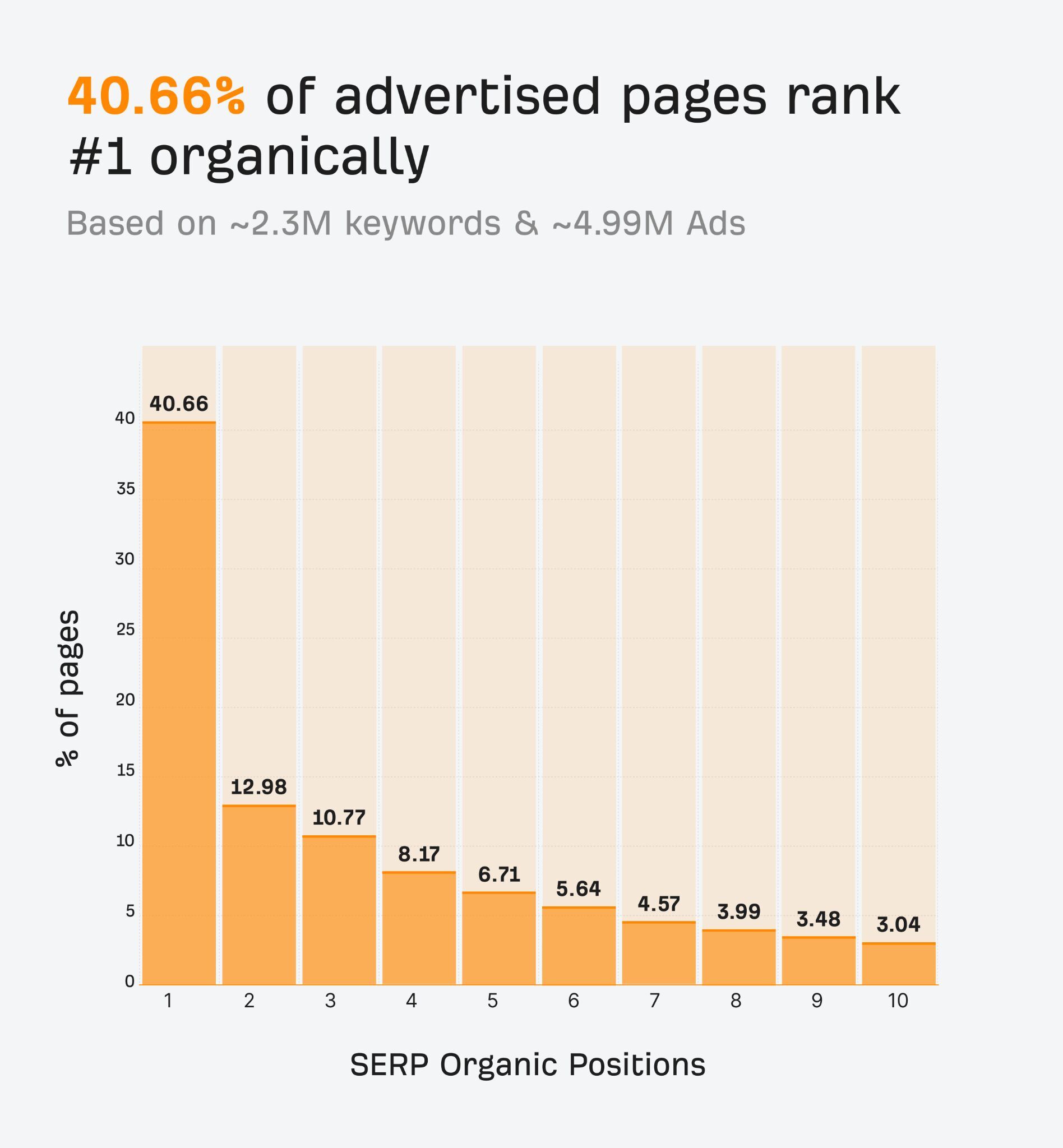
In short, Ash and many other site owners are paying Google for ad clicks even when they rank #1 for the same keyword.
Why? As Ash explains, you simply need to be there if a good percentage of clicks are going to ads in your industry.
It’s all about what does the average person do? In our marketplace, a huge percentage of the clicks go to paid anyway. If you’ve got half the searches or more going to paid then you’d be mad not to be pushing it as hard as you can.
You can see that this is the case for the car mats industry in Ahrefs. For “ford fiesta car mats,” only 38% of clicks go to organic only. 28% go to paid only and a further 11% go to both paid and organic.
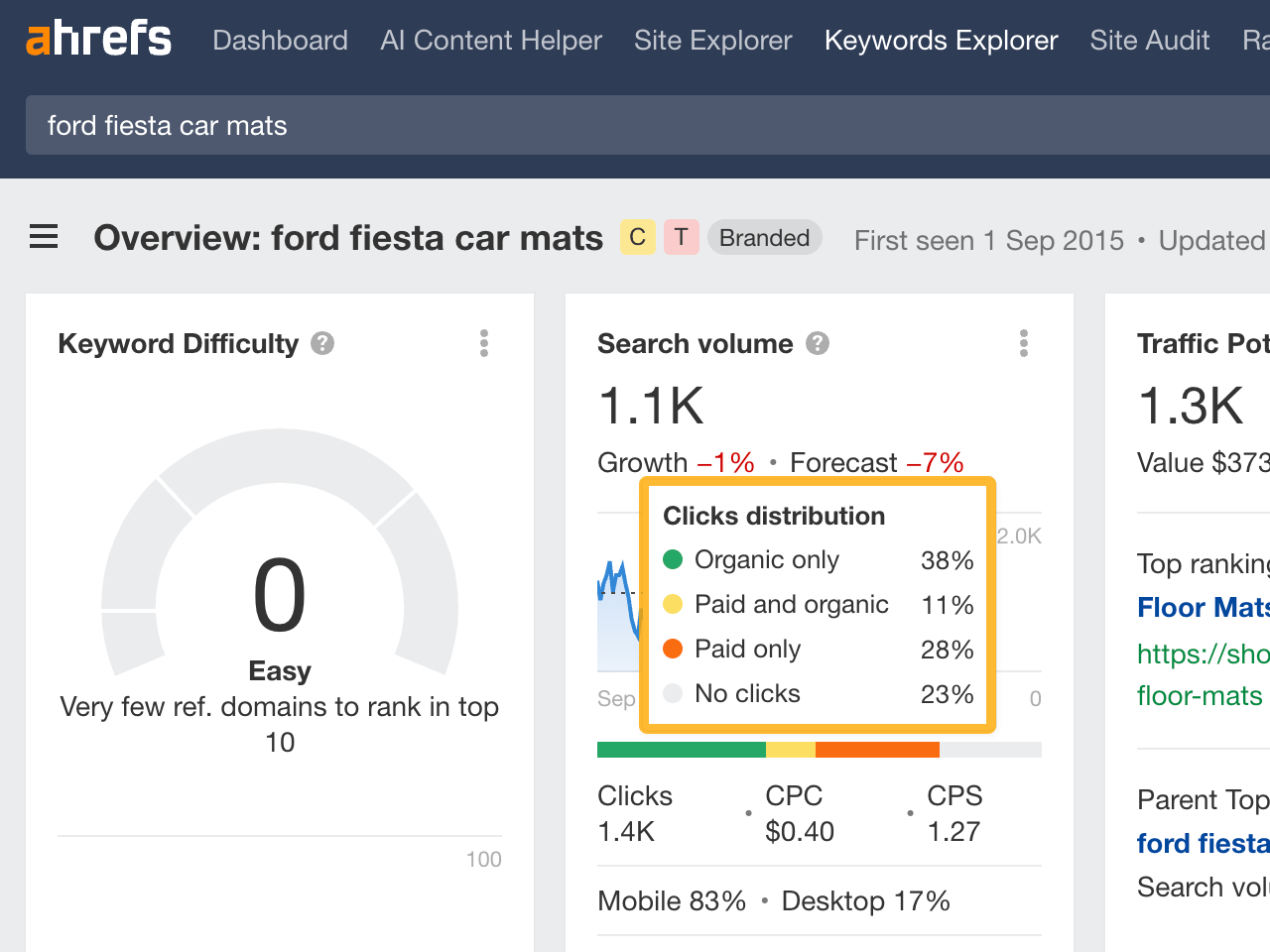
This might seem surprising to us web-savvy marketing folks but, as Ash pointed out, it’s pretty common for people to click ads.
Most people click ads. They either don’t realise they’re ads or they don’t care because it’s a good result for them. More often than not, when you’re looking for stuff to buy online, the ads are quite often better than some of the organic results because some of those have been there forever. They might not be the newest things or the best things; they’re just relying on the fact that they get some free traffic from Google.
Similar Posts

What Is Domain Flipping? 8 Steps to Getting Started, and Tips to Profit from Domains in 2025
Have you ever heard of domain flipping? It’s an unusual way to make some extra cash online. Basically, you buy a domain name for a low price and then sell it for a higher price to make a profit. Sound familiar? It’s kind of like buying and selling real estate (or Pokémon cards) but instead…
Drupal 11.1 Adds Hooks as Classes: A History, How-To, and Tutorials We’ve Updated
With the release of Drupal 11.1, there’s a cool new feature for developers: Hooks can now be implemented as class methods using PHP attributes instead of functions. This change is a major step forward in modernizing Drupal’s codebase. While procedural function-based hooks are still supported (and will be for some time), developers writing new code…

Want to Grow Your Business? You Need a Growth Strategy
Growing a business isn’t just about working harder; it’s about working smarter. A well-thought-out growth strategy helps you identify opportunities, allocate resources effectively, and create a roadmap for sustainable expansion. Whether you’re a startup or an established company, a growth strategy is essential to scale your business in today’s competitive landscape. Here’s a step-by-step guide…
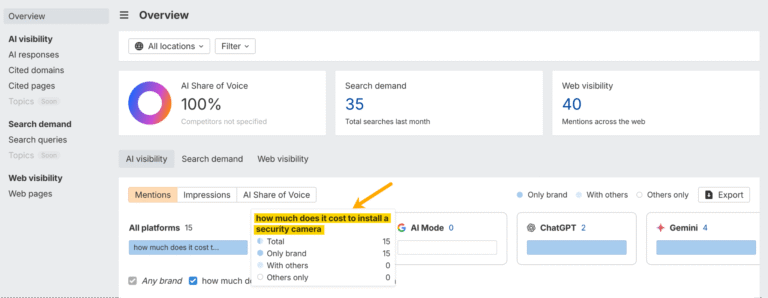
ChatGPT May Scrape Google, but the Results Don’t Match
We know that AI assistants like ChatGPT access search indices, like Google and Bing, to retrieve URLs for their response. But how, exactly? To find out, we’ve run a series of experiments looking at the relationship between the URLs cited by AI assistants, and the results found in Google when searching for the same topics….

What Effect Will AI Have on Constructing an Outstanding Website?
The Impact of AI on Constructing an Outstanding Website Artificial Intelligence (AI) is transforming the way websites are designed, developed, and maintained. It enhances efficiency, personalisation, and functionality, making it easier than ever to create outstanding websites that deliver exceptional user experiences. Here’s a deep dive into the ways AI impacts website construction: 1. Streamlining…
Entity API Course Updated to Cover the Use of PHP Attributes
As of Drupal 11.1.0, core has support for defining custom entity types (both content and configuration) using PHP attributes instead of annotations. And now, all our Entity API tutorials have been updated to reflect this change. We previously performed extensive updates that rewrote all our tutorials that made use of annotations for Drupal plugins. See…

